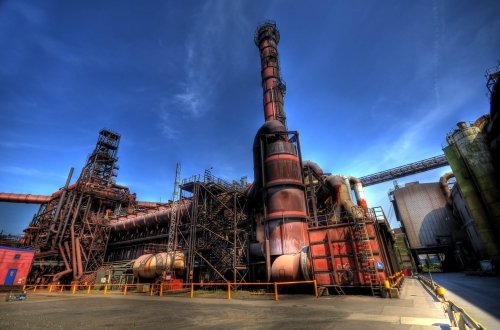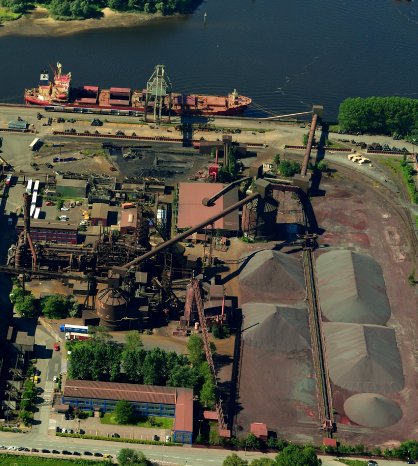This year, the Group intends to launch a new project in the ArcelorMittal plant in Hamburg to use hydrogen on an industrial scale for the direct reduction of iron ore in the steel production process for the first time. A pilot plant is to be built in the coming years.
Already today, the Hamburg plant has one of the most efficient production processes of the ArcelorMittal Group due to the use of natural gas in a direct reduction plant (DRI). The aim of the new hydrogen-based process is to be able to produce steel with the lowest CO2 emissions. The project costs amount to around 65 million euros. In addition, a cooperation agreement with the University of Freiberg is planned in order to test the procedure in the coming years at the Hamburg plant premises. The hydrogen-based reduction of iron ore will initially take place on a demonstration scale with an annual production of 100,000 tonnes.
"Our Hamburg site offers optimum conditions for this innovative project: an electric arc furnace with DRI system and iron ore pellets stockyard as well as decades of know-how in this area. The use of hydrogen as a reducing agent shall now be tested in a new shaft furnace," comments Frank Schulz, CEO of ArcelorMittal Germany.
In the process, the separation of H2 with a purity of more than 95 percent from the top gas of the existing plant should be achieved by so-called pressure swing adsorption. The process is first tested with grey hydrogen (generated at gas separation) to allow for economical operation. In the future, the plant should also be able to run on green hydrogen (generated from renewable sources) when it is available in sufficient quantities.
With the Hamburg hydrogen project, ArcelorMittal is advancing pioneering technology for direct CO2 avoidance as one of a number of potential pathways for low-emissions steelmaking. The Group is already investing more than 250 million euros in various carbon emissions reduction technologies, for example in Ghent where waste carbon gases will be used for the production of alternative fuels or in chemical products. Likewise, methods are tested in which biocoal from waste wood is used instead of coking coal as a reducing agent in the blast furnace.
ArcelorMittal is committed to climate protection. With its multi-technology approach, the Group wants to make an active contribution to achieving the ambitious climate and energy policy goals of the Paris agreement and to identify which technologies are technically and economically feasible to reduce, capture or avoid CO2 emissions.


